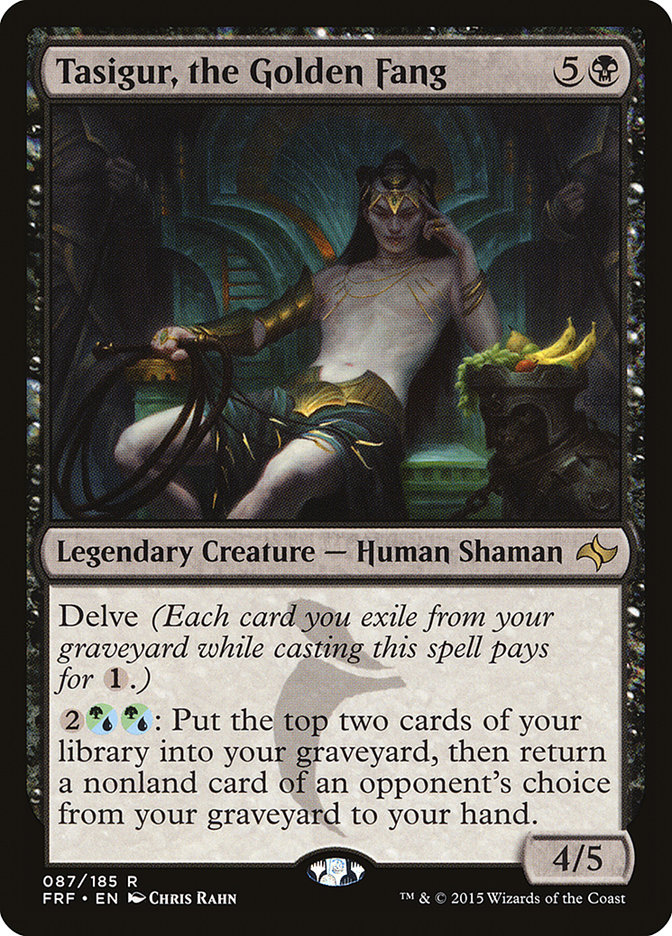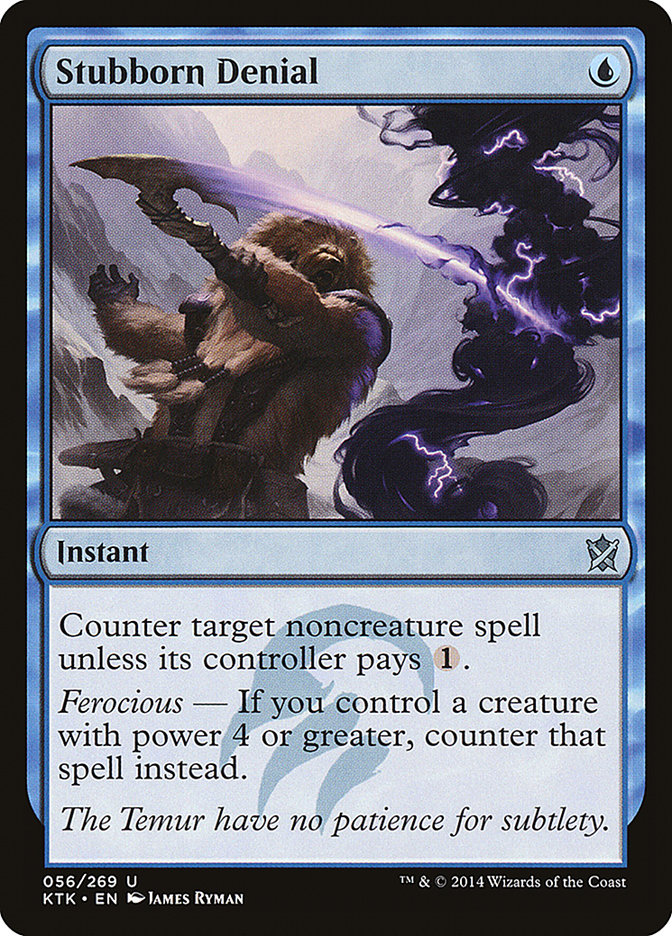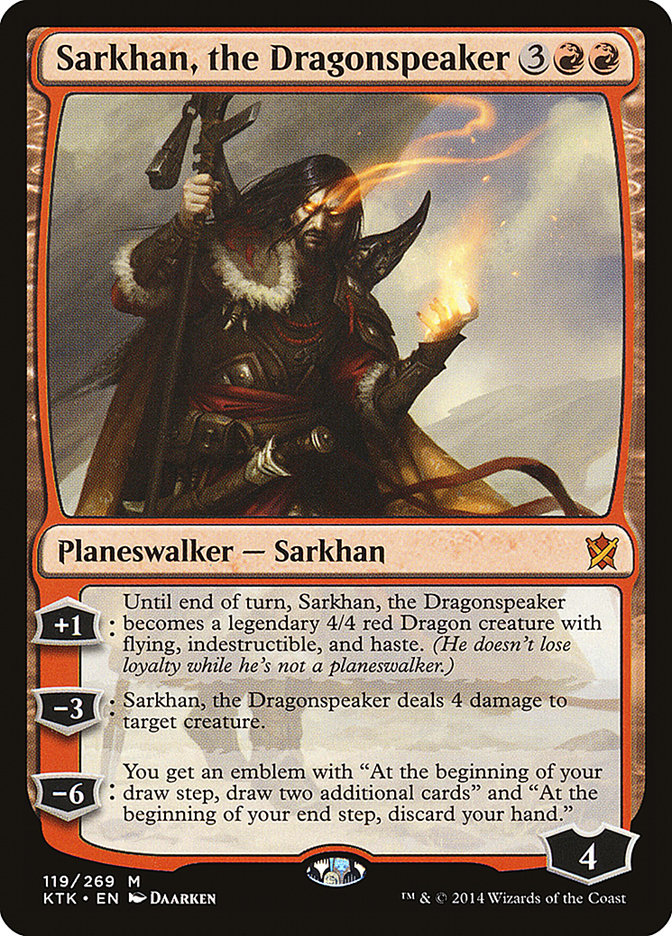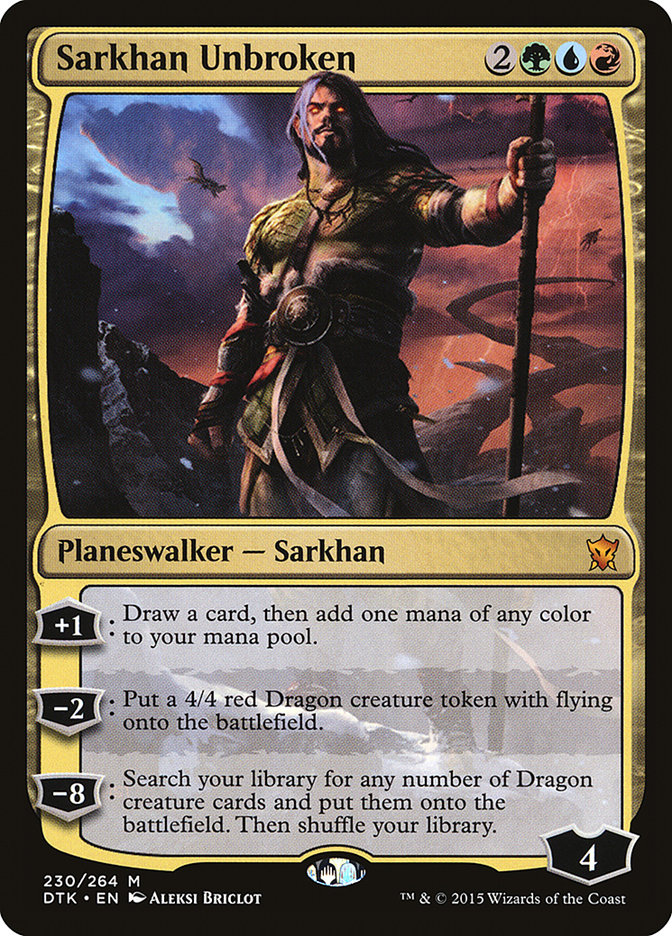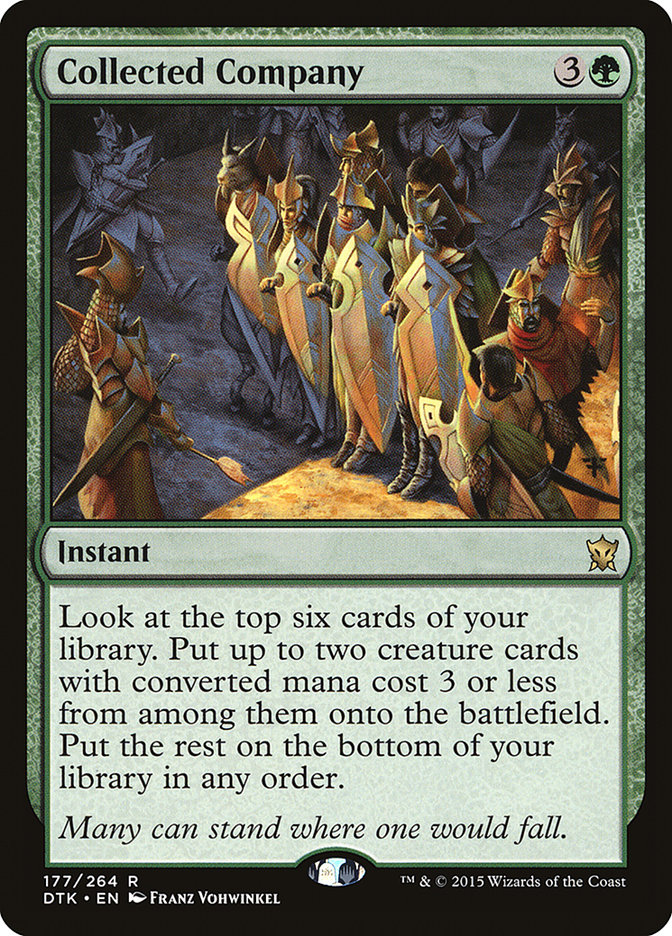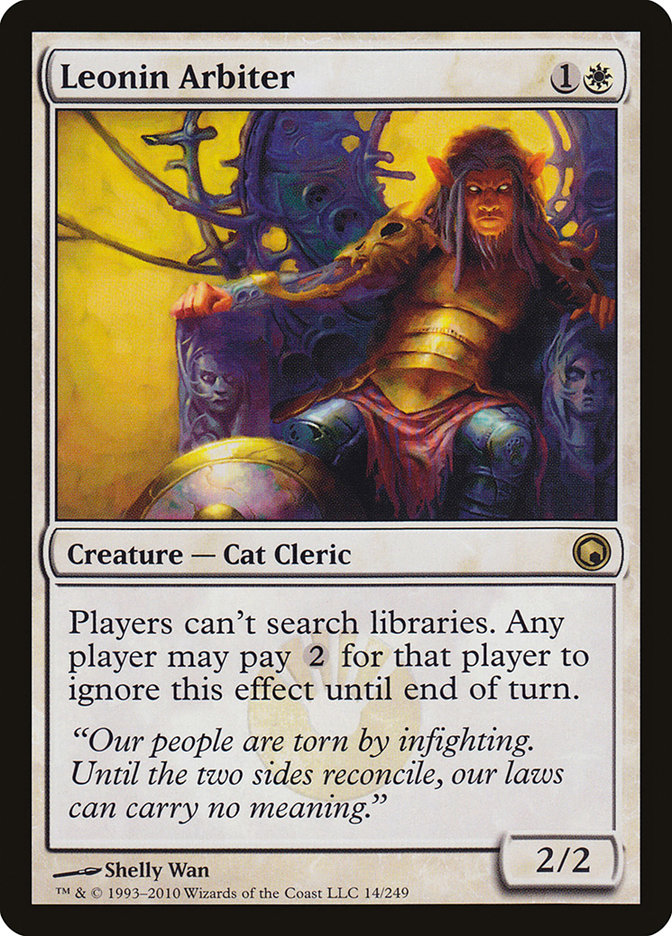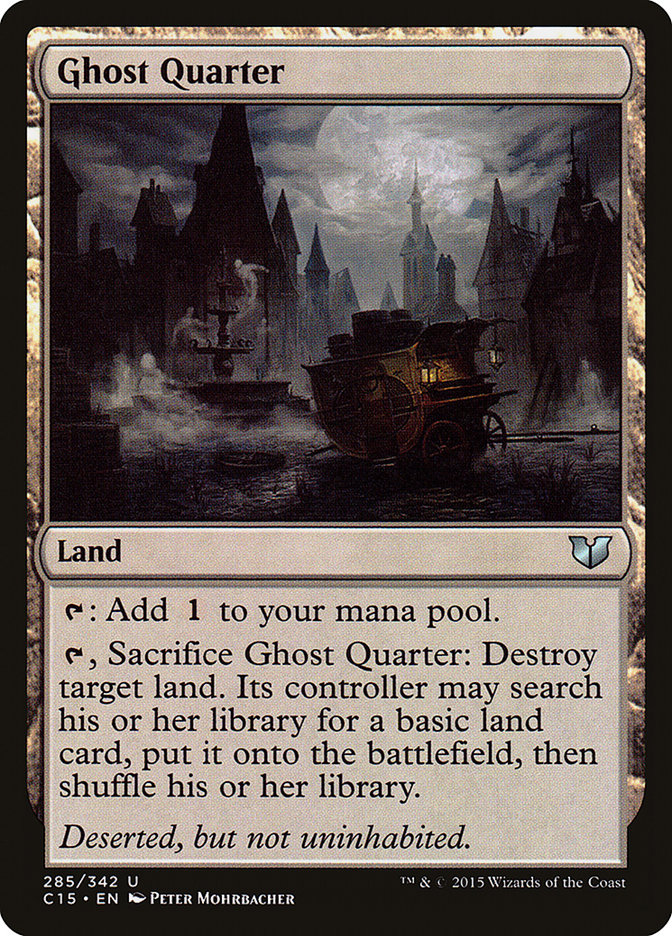You ever have one of those experiences where you were stressing out about something, only to discover that you were completely wrong about what was stressing you out all along? Like when you can’t find your passport and you think you lost it, only to find out it was packed away safely in your luggage all along? Or when you didn’t read one of the books for a class in school, and you freak out thinking it’s going to be covered on the final, only to realize that it was on the “extra reading” list and you don’t have to worry about it at all.
That’s basically me and Legacy for the upcoming Invitational.
Just last week, I was poring over decklists from the #SCGNJ Legacy Open trying to find something that I’d be comfortable playing during the Legacy rounds in Las Vegas next week. I searched online for advice on how to beat Miracles with Death and Taxes and Maverick, since those are the only two decks I have any real experience playing in Legacy, and Miracles seemed certain to be everywhere based on the Legacy Open results. I mentioned offhand on my stream the other day that I had no idea what I was going to play in Legacy when someone told me that the format was in fact Standard and Modern instead.
Oh happy day!
Now, I understand that there are a lot of people out there who love Legacy. I have to admit that it’s a format that I enjoy playing on occasion too, simply because having a chance to play with so many cards from Magic’s history is pretty sweet. But I don’t enjoy playing it at a highly competitive level, in part because I feel like it is extremely volatile in how the games play out and in part because I’m not familiar enough with it to really feel like I can ever be well prepared. Given that I tend to play at most one Legacy event a year, I’ve never really put in the time to learn the ins and outs of the format as a whole. I’ve done well in Legacy events before, including a Top 8 near miss at a Grand Prix, but only because one of the decks I happened to know how to play was particularly well-positioned that weekend.
Modern, though, is a format that I’ve played quite a bit. I’m no format specialist like a Patrick Dickmann with Splinter Twin or Sam Pardee with Birthing Pod, but I have at least played enough of the format with enough different decks that I have a sense of what matters and how games play out. I’m not a huge fan of Modern in general, but I’ve at least spent enough time playing it that I feel like I know what I’m getting myself into. The devil you know, as they say.
So now that I actually know what formats I’m going to be playing next weekend, I’ve been able to start testing for the tournament. Hooray!
On Magic Online! Boo!
For as much flak as I’ve given Magic Online over the past few years, I have to give them credit where credit is due. The new leagues offer a massive improvement in user experience over previous options for competitive play. While I understand that some players bemoan the loss of EV with the introduction of play points and the changes to daily events, I always felt like one of the biggest failings of Magic Online was how horribly it treated my time.
Before leagues, my choices for competitive Constructed play were either daily events, two-player events, or eight-player queues. Daily events and eight-player queues required waiting on other players to finish their games to the point that I often spent more time waiting than actually playing. With leagues, though, I can get my matches done in succession quickly, and my only waiting is for my opponents to make their decisions in game. A huge step up, to be sure.
In any case, here’s what I’ve been testing:
Creatures (20)
- 4 Rattleclaw Mystic
- 4 Savage Knuckleblade
- 2 Tasigur, the Golden Fang
- 2 Thunderbreak Regent
- 4 Woodland Wanderer
- 4 Snapping Gnarlid
Planeswalkers (2)
Lands (26)
Spells (12)

Yes, this is exactly the Temur Black list that Josh McClain played to a Top 8 finish in a recent Standard Open, and which I wrote about last week. This is where I started my testing, at least.
The deck felt solid, for the most part, even in the games that I lost. I liked the change that Josh made to include the Tasigurs, and they were excellent pretty much every time I drew them. They gave the deck at least a modicum of a long-term gameplan in some matchups, which it otherwise lacks. Perhaps more importantly, Tasigur allows you to more readily play multiple threats or a threat plus a removal effect in a single turn. Such is the power of delve.
One card that actually underperformed somewhat for me was Stubborn Denial. Denial is a great card, but it’s obviously conditional on having a battlefield presence in order for it to be effective. It’s excellent at keeping you ahead when you’re there already, but it’s pretty terrible when you’re behind. This makes it a troublesome card in sideboarded games when you’re likely to be facing more removal, and particularly when you’re on the draw and unlikely to have mana to spare to protect your early creatures.
I often found myself wishing I had some kind of non-creature threat to punish opponents who overloaded on removal against me. Sarkhan, the Dragonspeaker is powerful, but with just two copies and no card draw, he doesn’t come up nearly as much as I’d like. Outpost Siege is a consideration, but even if I’m cutting down on Stubborn Denials, I still want access to things like Dispel and Disdainful Stroke in most matchups where I’d want Siege, which makes it much less attractive. That leaves me looking at something like Kiora or Sarkhan Unbroken.
I’ve tried both Kiora and Sarkhan before, and they’re both pretty strong. Kiora works particularly well alongside Rattleclaw Mystic and mana sinks like Savage Knuckleblade, Tasigur, and Crater’s Claws, since they help you leverage her plus ability to generate mana. Her minus ability also synergizes well with Tasigur and other delve cards, since it helps fill your graveyard quickly. If I were to sideboard some number of Kioras, I’d strongly consider including something like a Treasure Cruise as well to give me another way to leverage my graveyard in matchups where I’m likely to remove all or most of my Murderous Cuts.
Sarkhan Unbroken is a bit more standalone, serving to generate either raw card advantage or threats in the form of 4/4 Dragons. The biggest problem with Sarkhan is his vulnerability to Crackling Doom. Jeskai Black is one of the matchups where I like having access to planeswalker threats, and his -2 making a Dragon sets both he and his Dragon friend up to die a horrible death for just RBW. It is nice that his draconic friend helps enable Stubborn Denial to protect the both of them, but I usually like to try to play Sarkhan and plus him before I start churning out Dragons.
This is what I’m going to be trying this week:
Creatures (20)
- 4 Rattleclaw Mystic
- 4 Savage Knuckleblade
- 2 Tasigur, the Golden Fang
- 2 Thunderbreak Regent
- 4 Woodland Wanderer
- 4 Snapping Gnarlid
Planeswalkers (2)
Lands (23)
Spells (15)

Not a huge shift, but I want to see how each of the planeswalkers play out and how I like the shift in countermagic numbers. The marginal shift away from Stubborn Denial toward Dispel gives the deck essentially the same tools to protect its creatures and stop things like Become Immense, but opens up some vulnerability to planeswalkers and sorceries, so it could hurt the deck’s matchup against Eldrazi Ramp and Esper Dragons. We shall see.
As for Modern, this is where I’m going to start:
Creatures (28)
- 4 Tarmogoyf
- 4 Wild Nacatl
- 4 Noble Hierarch
- 4 Knight of the Reliquary
- 3 Qasali Pridemage
- 2 Scavenging Ooze
- 4 Loxodon Smiter
- 3 Voice of Resurgence
Lands (18)
Spells (14)

Probably no big surprise here since I’ve been known to attack with Wild Nacatl and Knight of the Reliquary since even before there was a Modern format. While Modern is an incredibly diverse format that includes a number of powerful decks that Naya can struggle to beat, like G/R Tron and Amulet Bloom, I feel like it makes sense for me to play the deck that I know the best. It also doesn’t hurt that the last Grand Prix featured a Top 8 full of Splinter Twin and Affinity decks, which are among the matchups that I’m more than happy to face when I’m playing Zoo.
One of the big questions for Naya in Modern is whether or not to play Collected Company, and if the answer is yes, how much you bias your deckbuilding around it. Collected Company is a very powerful tool against control decks, but more importantly, against Splinter Twin. Twin’s greatest strength against fair creature decks in Modern is the tension between keeping up mana to answer the combo and the need to play more threats to pressure them. Thanks to instant speed, Collected Company allows for both, which makes the Splinter Twin player’s life much more difficult. This list takes that one step further than most and also includes Voice of Resurgence, which complicates the Twin player’s life even more.
Because I’m only playing two copies of Collected Company, however, I’m not massively altering my deckbuilding to support it. Some lists play things like Magus of the Moon and Kataki, War’s Wage over Blood Moon and Stony Silence, but in this case, I’m just sticking with the silver bullets that work the best. I’ve had far too many games where my Magus of the Moon died to Pyroclasm against Amulet Bloom or G/R Tron, or in which I played Kataki on turn 2 or 3 and my Affinity opponent still killed me shortly thereafter. I may not be able to find my enchantments with Collected Company, but at least when I draw them, I know they’re going to work.
I feel like Zoo is a strong deck against fair opponents, but perhaps I’m being foolish to assume that most of my opponents will play fair. If I have reason to believe that the room is likely to have more copies of Amulet Bloom and G/R Tron than Splinter Twin and Affinity, I may just have to audible to the deck Craig Wescoe used to make Top 8 of #GPPitt.
Creatures (30)
- 2 Aven Mindcensor
- 3 Wilt-Leaf Liege
- 4 Noble Hierarch
- 2 Qasali Pridemage
- 1 Linvala, Keeper of Silence
- 4 Leonin Arbiter
- 3 Scavenging Ooze
- 2 Thalia, Guardian of Thraben
- 4 Loxodon Smiter
- 4 Voice of Resurgence
- 1 Brimaz, King of Oreskos
Lands (20)
Spells (10)

It’s kind of funny – this deck is almost identical to the one that I played at the World Championships in Amsterdam two years ago, which incidentally led to one of the greatest collapses of my tournament career. I anticipated a field full of things like Birthing Pod and Scapeshift, and instead ended up in a metagame with nothing but Jeskai and Jund. I failed to win a match, when even a single win in Modern might have put me into the Top 4.
But with the right matchups? This deck is fantastic. Leonin Arbiter and Ghost Quarter may do a great Strip Mine impression, but Arbiter on its own is outstanding against decks like Amulet Bloom and G/R Tron that regularly search their library. Even some of the fairest decks in the format search their libraries all the time thanks to fetchlands, so sometimes you can just get free wins from a turn 2 Leonin Arbiter against an opponent without any real lands in their hand.
So which should I play? My deck selection dilemma for Modern is pretty much exactly what I dislike about the format, since it highlights just how important matchups can be in the highly polarized field.
But hey – no matter which deck I choose, I get to play with Noble Hierarch and Loxodon Smiter. Just an honest man with honest creatures –I can’t ask for much more than that, right?

